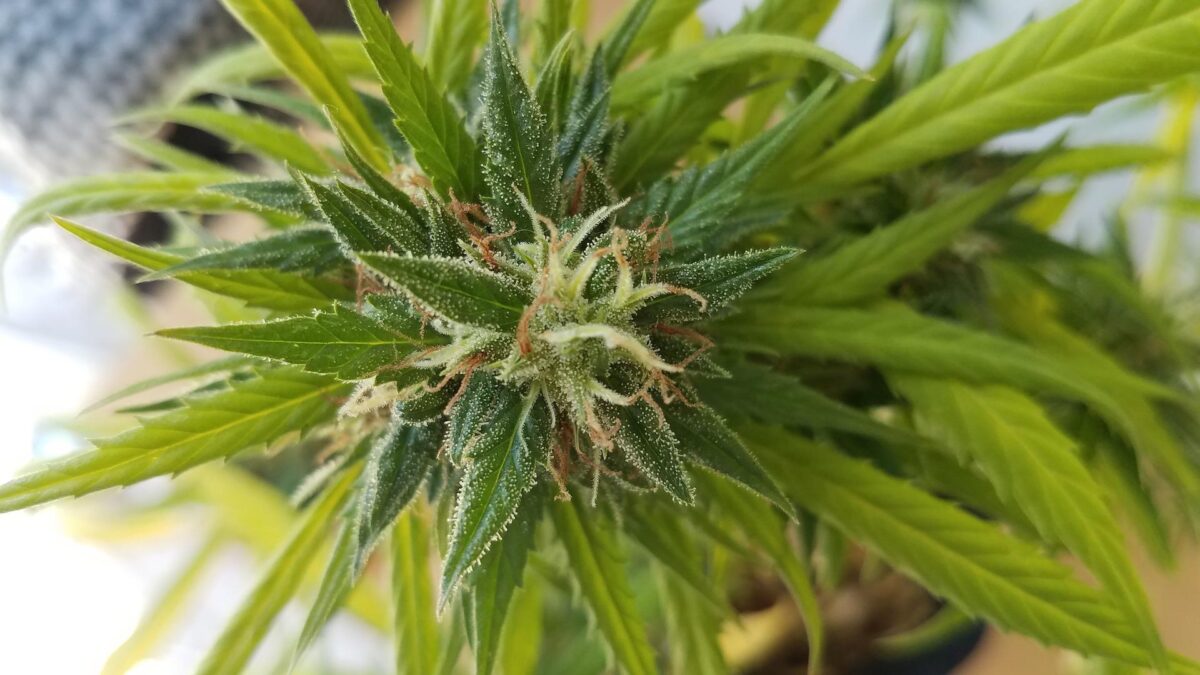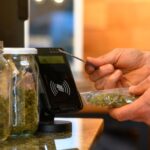
Ask Me Anything: New Jersey Cannabis Questions
Answers for all your questions about the New Jersey cannabis market and licensing process.
What cannabis business licenses are currently available in New Jersey?
There are currently eight (8) cannabis business license types available in New Jersey:
- Cultivator
- Processing
- Wholesaler
- Distributor
- Retailer
- Delivery
- Microbusiness
What are the licensing restrictions for cannabis cultivator licenses in New Jersey?
The number of licenses issued to New Jersey cannabis cultivators is capped at 37. Operators who hold this license are limited to one manufacturing license but cannot possess a wholesaler, distributor, delivery, or retail license.
What are the licensing restrictions for cannabis processing licenses In New Jersey?
Operators who obtain a cannabis processing license in New Jersey can only hold one cultivation license. They cannot hold a wholesaler, distributor, delivery, or retail license.
What are the licensing restrictions for a cannabis distributor license in New Jersey?
Operators who obtain the distributor license cannot obtain any other license under New Jersey cannabis law.
What are the licensing restrictions for a cannabis retailer license in New Jersey?
Operators who obtain the cannabis retailer license cannot apply for any other license under New Jersey cannabis law.
What are the license restrictions for a cannabis delivery license in New Jersey?
Operators who obtain the delivery license cannot apply for any other license under New Jersey cannabis law.
What are the restrictions for a cannabis microbusiness license in New Jersey?
- A microbusiness may consist of a cannabis cultivator, processor, wholesaler, distributor, retailer, and delivery service.
- The operation cannot have more than ten employees and can only operate in a space that is no more than 2,500 square feet.
- A microbusiness cultivator may not have a grow area that exceeds 2,500 square feet, measured on a horizontal plane, and 24 feet measured vertically above that plane. Additionally, microbusiness cannabis cultivators may not possess more than 1,000 plants per month.
- A microbusiness cannabis processor cannot process more than 1,000 pounds of cannabis plants each month except in a distributor’s possession for transportation. The processor also cannot acquire and process more than 1,000 pounds of cannabis in dried form each month.
- A microbusiness cannabis wholesaler can not acquire more than 1,000 pounds each month for resale.
- A microbusiness cannabis retailer can not acquire more than 1,000 pounds of usable cannabis, or the equivalent amount in any form of cannabis product, or any combination of various cannabis products, each month for sale.
What are the licensing restrictions for cannabis wholesaler licenses In New Jersey?
Operators who obtain a cannabis wholesaler license in New Jersey can hold a distributor license and an additional license. They cannot, however, hold a cannabis cultivator, processing, retail, delivery, or microbusiness.
What is the CREAMM Act?
The Cannabis Regulatory Enforcement Assistance and Marketplace Modernization Act (CREAMM) is the law that authorizes the New Jersey Cannabis Regulatory Commission (CRC) to expand upon the current medicinal cannabis program and develop, regulate, and enforce the rules for recreational cannabis. Essential features of the law include:
- Requiring the state courts to expunge records of certain cannabis-related offenses before the law
- Reinvest revenue from cannabis sales to people from Impact Zones
- Require the CRC to create minimum standards to protect the health of medical cannabis patients and recreational consumers
What is the Jake Honig Compassionate Use Medical Cannabis Act (Jake’s Law)?
The Jake Honig Compassionate Use Medical Cannabis Act expanded the state’s medical marijuana program. Examples of the expansion include:
- Expands the monthly patient limit from two to three ounces while ending the ban on terminally ill patients.
- Allows out-of-state patients to purchase medical marijuana.
- Changes the term “debilitating medical condition” to “qualifying medical condition” and updates the list of conditions, allowing chronic pain to qualify.
- Prohibits employers from taking any adverse employment action against an employee based on the employee’s status as a registry cardholder.
What New Jersey counties and towns have chosen to opt-in for cannabis retail sales?
The following areas have opt-in for New Jersey’s regulated cannabis market:
Atlantic County
- Absecon
- Egg Harbor Township
- Galloway
- Pleasantville
Bergen County
- Cliffside Park
- Elmwood Park
- Fair Lawn
- Fort Lee
- Garfield
- Hackensack
- Lodi
- Maywood
- Moonachie
- North Arlington
- Rutherford
- Saddle Brook
- Teaneck
- Wood-Ridge
Burlington County
- Bass River
- Bordentown City
- Burlington City
- Cinnaminson
- Delran
- Eastampton
- Evesham
- Lumberton
- Mount Holly
- Riverside
- Shamong
Camden County
- Barrington
- Collingswood
- Gibbsboro
- Oaklyn
- Pennsauken
- Somerdale
- Voorhees
- Waterford
Cape May County
- Woodbine
Cumberland County
- Bridgeton
- Millville
- Vineland
Essex County
- Belleville
- Bloomfield
- Irvington
- West Orange
Gloucester County
- Elk
- Franklin
- Greenwich
- Woodbury
- Woolwich
Hudson County
- Bayonne
- East Newark
- Jersey City
Hunterdon County
- Flemington
- Lambertville
Mercer County
- Ewing
- Hamilton
- Lawrence
Middlesex County
- Highland Park
- New Brunswick
- North Brunswick
- South River
- Woodbridge
Monmouth County
- Aberdeen
- Eatontown
- Freehold Borough
- Matawan
- Neptune City
- Neptune Township
- Ocean Township
- Red Bank
Morris County
- Boonton
- Butler
- Rockaway Borough
- Rockaway Township
Passaic County
- Haledon
- Passaic
- West Milford
Salem County
- Lower Alloways Creek
Somerset County
- Franklin
- North Plainfield
- Somerville
- South Bound Brook
Sussex County
- Andover Township
Union County
- Elizabeth
- Plainfield
- Rahway
- Union
Warren County
- Frelinghuysen
- Hackettstown
What are the tax differences between adult-use recreational cannabis and medical marijuana?
In New Jersey, recreational cannabis will be subject to a state tax of 6.625% and a local tax up to 2%. In addition to the state and local taxes paid by consumers, cannabis growers will have a gradually increasing excise tax.
Medical cannabis patients can obtain their cannabis tax-free. On July 1st, 2022 the tax rate went from 2% to zero.
When will NJ residents be able to buy adult-use cannabis in New Jersey?
New Jersey recreational cannabis sales began on April 21, 2022.
How much cannabis can one legally buy from state-licensed dispensaries?
Recreational consumers can purchase in a single transaction up to one ounce of cannabis or cannabis products equivalent to an ounce. For example, five grams of concentrates is equivalent to an ounce of usable cannabis. Medical-use consumers can purchase up to three ounces in a 30-day period.
Can New Jersey residents grow cannabis plants at home?
No, New Jersey residents cannot grow plants at home. It is illegal, with a fine of up to $25,000.
Can an employer fire an employee for cannabis consumption?
Under New Jersey law, an employer is prohibited from taking punitive action on an employee due to their cannabis use since April 21, 2022.
Can a municipality prohibit the consumption of cannabis on public property and in public places?
Generally, an adult 21 years or older can use cannabis on private property if the property owners allow. The CREAMM Act does not allow individuals to consume cannabis in public places. Municipalities are able to enact additional restrictions.
How many licenses of each cannabis business license type are available?
- Only 37 Class 1 cannabis cultivators will be allowed, which includes current alternative treatment centers. Microbusinesses do not count towards the 37 cultivator license cap. In addition, there is a temporary ban on vertical integration, which allows a single business to grow, produce, and sell cannabis products. The ban excludes alternative treatment centers (ATCs), which may concurrently hold a cultivator, manufacturer, and retailer license.
- A licensee, its owners, and the operators are limited to one cultivator license and one manufacturer license.
- A retail-dispensary, distributor, and delivery operator can only hold one license at a time.
Is it possible to obtain a license without full support from a municipality?
No, New Jersey requires at least a letter of support from the municipality where the business plans to reside. More information can be found here.
If I initially apply as a microbusiness, am I able to expand in the future?
New Jersey microbusiness annual license holders may submit an application to convert from a microbusiness to a standard cannabis business.
Can I apply for a license if I do not live in New Jersey?
Applicants can apply as an annual applicant without living in New Jersey.
Conditional applicant(s) must have at least one significantly involved individual who has lived in New Jersey for at least two years. In addition, the operator(s) with decision-making power must be over the age of 21.
As a dispensary owner, can I source products from operators in neighboring states that have legalized them?
No, while cannabis is still federally illegal, license holders may only source products grown and crafted within the state in which they are operating.
How can I publicly advertise my business?
A licensed cannabis business is allowed to advertise publicly under the following conditions:
- The advertisement must be for adults 21 and over. This includes advertising prohibiting the use of cartoons or any sort of individual under the age of 21 consuming the product;
- Health risks associated with the product, including advisement to those who are pregnant;
- Warning to not drive or operate heavy machinery on the product; and
- On television or the radio between the hours of 6:00 A.M. and 10:00 P.M
Where does the tax revenue from New Jersey cannabis sales go?
New Jersey cannabis law stipulates that 100% of an excise fee and about 60% of the sales tax must fund community reinvestment efforts. Communities most impacted by cannabis prohibition are given priority. The cannabis sales tax is at 6.625%.
How Can Point Seven Group Help?
The team of cannabis consultants and professionals at Point Seven Group have worked extensively in the U.S. and international cannabis markets and are familiar with the unique challenges of the cannabis industry. Follow us on social media to stay up to date with more cannabis industry updates!
- Wayzata moves to open city-run weed dispensary
 The City of Wayzata is considering opening its own recreational cannabis dispensary sometime next year. On Tuesday, Wayzata’s City Council and mayor approved a contract with Colorado-based consulting firm Point7 to draft a business plan for the possible municipal dispensary. This would be the city’s …
The City of Wayzata is considering opening its own recreational cannabis dispensary sometime next year. On Tuesday, Wayzata’s City Council and mayor approved a contract with Colorado-based consulting firm Point7 to draft a business plan for the possible municipal dispensary. This would be the city’s … - Indiana Cannabis Legalization: 2024 Update
 The Midwest has become a bustling hub for cannabis policy and industry, with states like Michigan, Illinois, and Ohio leading the charge in cannabis legalization. However, Indiana’s stance on cannabis remains a topic of significant interest and debate. As we delve into the status of …
The Midwest has become a bustling hub for cannabis policy and industry, with states like Michigan, Illinois, and Ohio leading the charge in cannabis legalization. However, Indiana’s stance on cannabis remains a topic of significant interest and debate. As we delve into the status of … - Cannabis Expungement and Social Equity: Proven & Failed Concepts
 In the realm of cannabis expungement and social equity, examining both proven and failed concepts is crucial for understanding the complexities of justice reform and equity within the cannabis industry. Proven concepts include initiatives such as automatic expungement processes, which streamline the clearance of certain …
In the realm of cannabis expungement and social equity, examining both proven and failed concepts is crucial for understanding the complexities of justice reform and equity within the cannabis industry. Proven concepts include initiatives such as automatic expungement processes, which streamline the clearance of certain …

